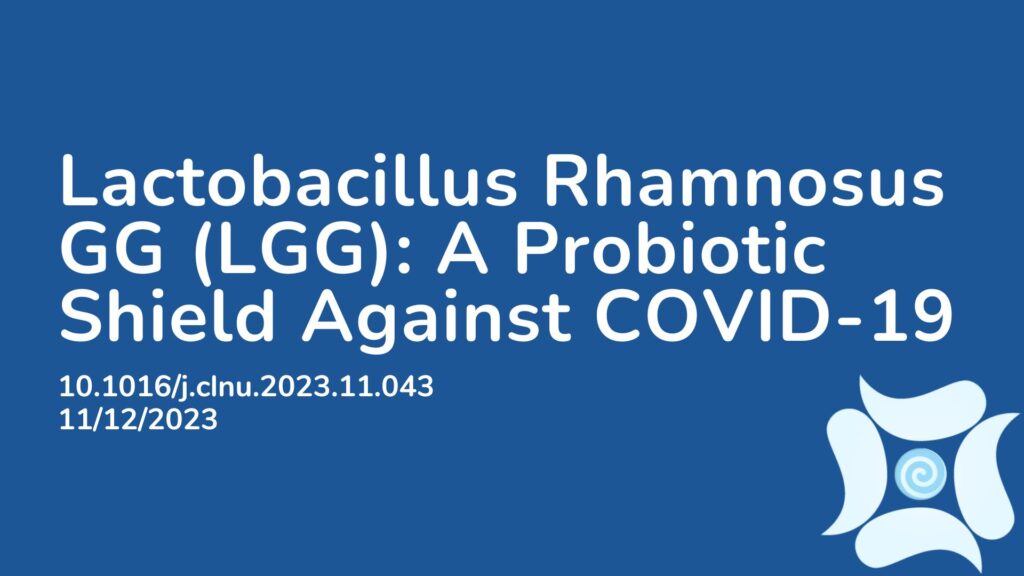Summary:
An alternative, cost-effective preventative and management therapy for COVID 19 is needed, especially in developing countries where income is low. Probiotics, live bacteria known to modulate the immune system and inflammatory responses, are emerging as an option. Recent data indicate that probiotics can prevent respiratory tract infections due to influencing the immune system and anti-viral gene expression. Lactobacillus rhamnosus GG (LGG) has been looked at in research as a promising probiotic for COVID-19 prevention due to its success in various studies. This study is a randomized, double-blind, placebo-controlled trial, conducted to assess LGG’s prophylactic efficacy when exposed to COVID-19. Participants were randomly assigned to receive either oral LGG or a placebo for 28 days. The results indicated that LGG significantly lowered the likelihood of developing illness symptoms compared to the placebo. LGG also caused a significant delay in the diagnosis of COVID-19. However, the overall incidence of COVID-19 diagnosis did not significantly differ between the LGG and placebo groups. There were also changes present in the microbiome in the LGG group. In conclusion, this data suggests that LGG is linked to a prolonged time to COVID-19 infection, a reduced incidence of illness symptoms, and changes in the gut microbiome. This research may offer insights for future COVID-19 prevention studies worldwide, especially in developing nations.
Abstract:
Background & aims: The COVID-19 pandemic continues to pose unprecedented challenges to worldwide health. While vaccines are effective, additional strategies to mitigate the spread/severity of COVID-19 continue to be needed. Emerging evidence suggests susceptibility to respiratory tract infections in healthy subjects can be reduced by probiotic interventions; thus, probiotics may be a low-risk, low-cost, and easily implementable modality to reduce risk of COVID-19. Methods: In this initial study, we conducted a randomized, double-blind, placebo-controlled trial across the United States testing probiotic Lactobacillus rhamnosus GG (LGG) as postexposure prophylaxis for COVID-19 in 182 participants who had household exposure to someone with confirmed COVID-19 diagnosed within ≤7 days. Participants were randomized to receive oral LGG or placebo for 28 days. The primary outcome was development of illness symptoms within 28 days of COVID-19 exposure. Stool was collected to evaluate microbiome changes. Results: Intention-to-treat analysis showed LGG treatment led to a lower likelihood of developing illness symptoms versus placebo (26.4 % vs. 42.9 %, p = 0.02). Further, LGG was associated with a statistically significant reduction in COVID-19 diagnosis (log rank, p = 0.049) via time-to-event analysis. Overall incidence of COVID-19 diagnosis did not significantly differ between LGG and placebo groups (8.8 % vs. 15.4 %, p = 0.17). Conclusions: This data suggests LGG is associated with prolonged time to COVID-19 infection, reduced incidence of illness symptoms, and gut microbiome changes when used as prophylaxis ≤7 days post-COVID-19 exposure, but not overall incidence. This initial work may inform future COVID-19 prevention studies worldwide, particularly in developing nations where Lactobacillus probiotics have previously been utilized to reduce other non-COVID infectious-morbidity.
Article Publication Date: 11/12/2023
DOI: 10.1016/j.clnu.2023.11.043




